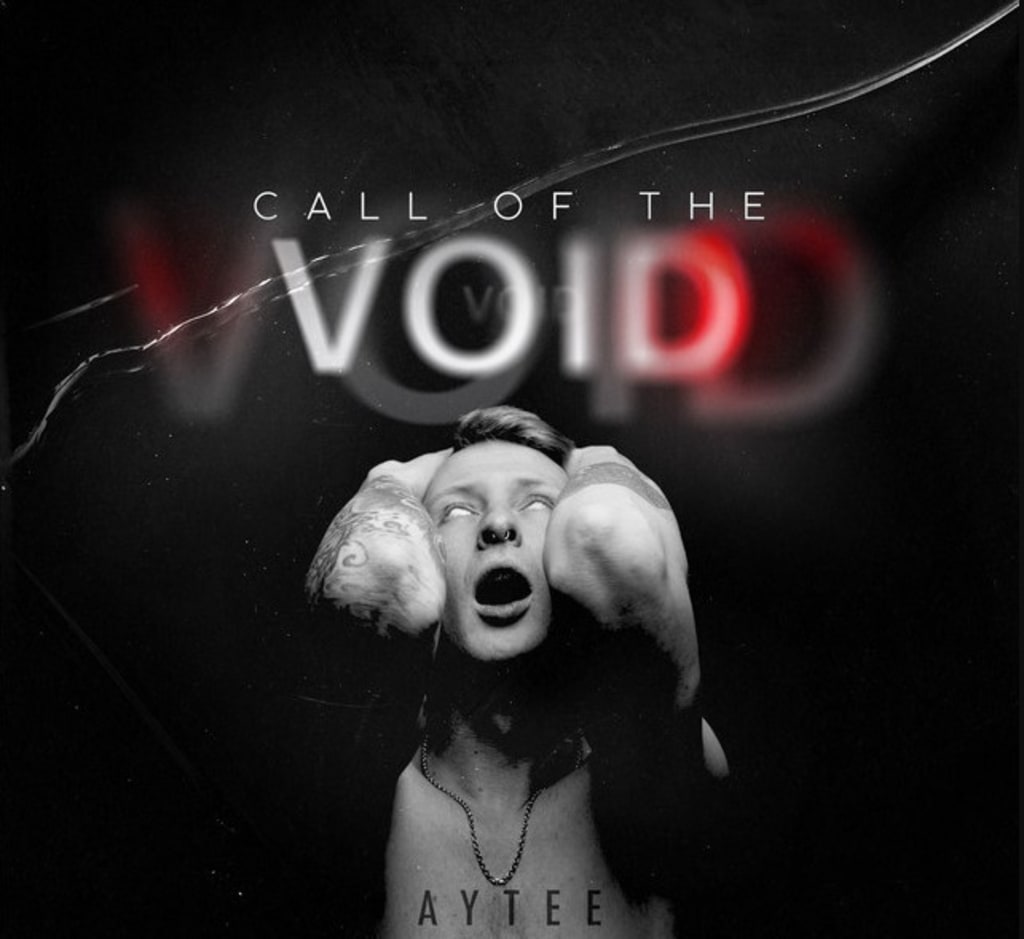The Call of the Void
Where Do Horrible Thoughts Come From?

If you've ever been in the driver's seat of a real car while driving along on an otherwise regular day in an otherwise ordinary positive mindset and then allegedly out of nowhere, you had a sudden desire to drive, even if just for a moment, you know that we usually feel as though we are in the driver's seat and that we are in charge of ourselves going where we desire for reasons that we are aware of.
Having the urge to drive into traffic or off a cliff but having little interest in dying or hurting anyone or anything may seem strange to some people, but this experience is quite common. Numerous philosophers and psychologists have discussed it, and it has been the subject of numerous studies. The Cry of the Void is the most prevalent name for the phenomenon. La pel de vid was originally a French expression. More generally, these phenomena are also frequently referred to as intrusive thoughts. Still, the most prevalent example is the "high place phenomenon," which refers to the sensation of being in a high place like the top of a building or a cliff. If you have ever experienced this version, it is typically explained as high up somewhere with little to no guardrails, and while standing close to the edge, the intrusive thoughts begin.
In a 2011 study by psychologist Dr. Jennifer L. Haymes at Florida State University, roughly a third of the 431 participants reported having had this other experience. According to studies, more than 50% of people have encountered this phenomenon in some form. Of course, there are many options to take into account while trying to explain this phenomenon. We watch horror and thriller films in part for this very purpose to imitate the sensation of extreme and frequently awful circumstances to feed our morbid curiosity. However, it's also possible that this is only the result of our curiosity and the attractiveness of something severe that we will never truly undertake. If so, we may encounter the call of the Void phenomena as a result of our mind trying to imagine what it would be like if the worst-case scenario occurred, which we mistake for a desire or need. We are naturally curious beings, and as kids, many of us at least thought about placing our hands on a hot stove or sticking our fingers in a dangerous electrical outlet. Later on, as adults, we might consider jumping off a ledge even though we know that doing so will kill us. What does that one feel like? We might wonder. It's only a step away. Maybe we're just irrationally fascinated by the potential harm to ourselves.
In contrast, alluding to the Florida-mentioned State University study above, Hames and her colleagues claimed that the phenomena result from misreading our survival, suggesting that we want to know what it feels like in some capacity. The individual's conscious mind then interprets and rationalizes this response as a need to jump rather than an urge to avoid the edge when they experience a fear of falling off a cliff or building and instinctually react by taking the necessary precautions to avoid this. This could include visualizing and imagining the scenario as well as moving away from and preventing the edge. This experience has also been extensively discussed in the philosophy of existentialism, though existentialists view it quite differently. In particular, existentialist philosophers saw in Kierkegaard and Jean-Paul Sartre, who both examined and discussed the phenomenon in their works, using the exact example of someone standing on the edge of a building or cliff in a seminal work called Being in Nothingness. Starter outlines the experience of being in a predicament and feeling the anxiety of potentially jumping as a result of one's realization of their freedom and responsibility as the "vertigo of possibility," and Kierger, whose work Sartor was greatly influenced by, wrote in a similar manner that "anxiety is the dizziness of freedom" because "one has the freedom to choose to do something possible in every moment, including potentially horrible things and one is lone" Man is doomed to be free, according to Sartor, because he is accountable for all he does once he enters the world.
According to Kierkegaard and Sartre, the human being is destined to be free because it is a weight to bear that invariably results in great suffering. This is because the human being constantly finds himself at the intersection of limitless potential, blind uncertainty, and personal responsibility. Sartor and Kierogard both use this high-place scenario to illustrate this. On the edge of the cliff or building, one experiences the real heaviness of this responsibility. It is the symbolic height of the anguish related to The Human Condition. It is a matter of life or death and always one step away. It is up to us to decide to build off but to combat the existentialist explanation, one could also argue that this feeling is not a response to one's realization of one's mortality one could also say t our ancestry, our environments, unconscious minds, and moods everything in this instance feels the same. Springs up from the blending of possibility and uncertainty, mirroring the existentialist perspective, but differently, it is not the uncertainty of what we will do with our freedom but the uncertainty of what we will do as a result of our lack of freedom or free will the unpredictability of our impulses, feelings, and thoughts that seem to always appear in our awareness of which we never really know or control until we have already thought, felt, or acted on them.
Even if we never would, our conscious filter always caught us; perhaps the call of the void is so unsettling since it is a rare instance of clarity into this avoid in our psychology. There is little research on the call of the void and even less certainty surrounding an explanation. Perhaps the void is not just an opening or disconnect between what we know about ourselves and what is true for us.
About the Creator
Ian Sankan
I am a writer with proven writing ability in various fields. I consider writing a passionate career and a platform through which I extend my intellectual ability.






Comments
There are no comments for this story
Be the first to respond and start the conversation.